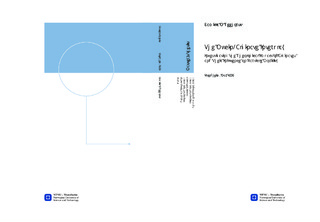The Mucin-Alginate Interplay: Investigating the Rheological Impact of Alginates and Their Influence on Particle Mobility
Master thesis
Permanent lenke
http://hdl.handle.net/11250/246084Utgivelsesdato
2014Metadata
Vis full innførselSamlinger
Sammendrag
Mucus is a hydrogel that covers epithelial cells and acts as an intermediary between the exterior and interior surfaces of the human body. It is complex and diverse, comprised of various compounds and serves as a selective barrier to pathogens, nutrients and administered substances. It is therefore important to circumvent or penetrate this barrier to increase drug bioavailability. The most important constituent of mucus is mucin glycoprotein that enables gel formation. Due to the molecular nature of mucin, it interacts with most substances including polyanionic biopolymers like alginates. Alginate molecules have been extensively used in pharmaceutical and medical industries as mediators because they possess suitable characteristics for a variety of biomedical applications. They have also been shown to influence mucus rheology, and could hold potential to alter other properties of mucus as well, such as particle mobility. In this thesis, the effect of different molecular weight alginates were investigated on the rheology of porcine gastric (PG) mucin, porcine small intestinal mucus (PSIM), porcine tracheobronchial mucus (PTBM) and bio-similar mucus. In addition, the effect of alginate on particle mobility in PG mucin samples were investigated using multiple particle tracking (MPT). The rheological effect of alginate G-block DPn 12, DPn 24, DPn 33 and alginate LFR 5/60 on PG mucin was inconclusive as the sample suffered from pH and mechanical instabilities. Particle mobility was greatest for G-block DPn 12 and G-block DPn 33 treated PG mucin at long time scales. In addition, their mean-square displacement (MSD) trajectories were more narrowly distributed than the other samples, which correlates to a higher degree of uniform pore sizes. The rheological behaviour of bio-similar mucus and PSIM after treatment of G-block DPn 12, G-block DPn 33 and LFR 5/60 did not coincide, despite bio-similar mucus being a model system for porcine intestinal mucus (PIM). This was ascribed interactions between alginate and polyacrylate in the bio-similar mucus causing phase separation. Alginate G-block DPn 12 weakened the PSIM and PTBM gel, while G-block DPn 33 and LFR 5/60 had minor strengthening effects on PSIM.
